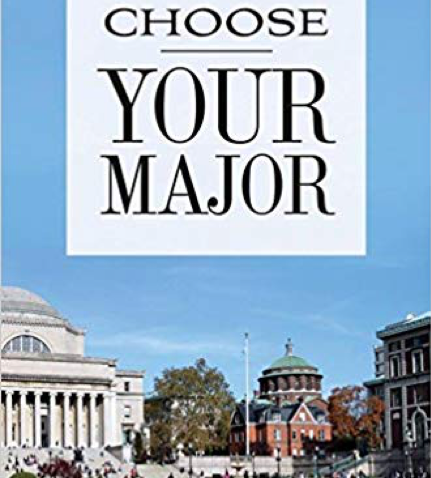by Christian Boyles
How to Choose Your Major
by Mary E. Ghilani
LB2361.5 .G55 2017
About the book
Entering the workforce after college can be scary to say the least, especially if a graduate is unprepared or ill-equipped to seek out an appropriate career path or job opportunity. This practical manual dispenses invaluable tips, strategies, and advice to students preparing for the job market by guiding choices impacting academic courses, fields of study, and future marketability. Author Mary E. Ghilani wisely describes how college majors relate to employment and introduces the eight “Career Ready” competencies sought by employers in new graduates.
This guidebook helps students undecided about their future navigate the intimidating journey from college to career readiness. Content explores the best strategies and tips for choosing a career, ways to overcome common career indecisiveness, suggestions for careers based on personality type, and the latest employment projections and salary figures. Chapters for students with atypical circumstances—such as older adults, veterans, those with criminal records, and those with special needs—examine the unique paths available to them as they define their skills and launch their careers after graduation. This title is also available electronically.
Is it checked out? Don’t worry about it. Here are some other titles on the subject:
A Practical Education : Why Liberal Arts Majors Make Great Employees | LC1023 .S77 2017
The liberal arts major is often lampooned: lacking in “skills,” unqualified for a professional career, underemployed. But studying for the joy of learning turns out to be surprisingly practical. Unlike career-focused education, liberal education prepares graduates for anything and everything―and nervous “fuzzy major” students, their even more nervous parents, college career center professionals, and prospective employers would do well to embrace liberal arts majors. Just look to Silicon Valley, of all places, to see that liberal arts majors can succeed not in spite of, but because of, their education. At a time when institutions of higher learning are increasingly called on to justify the tangible merits of the liberal arts, A Practical Education reminds readers that the most useful training for an unknowable future is the universal, time-tested preparation of a liberal education.
10 Best College Majors for Your Personality | LB2361.5 .S528 2011
By choosing a major that fits their personality, college students may improve their career certainty, graduation rates, and even school involvement and satisfaction, according to research. A self-assessment helps readers quickly determine their personality type. Next, more than 90 best majors lists reveal the 10 best majors overall for each personality type plus many must-know facts and figures not found elsewhere. Other best majors lists for each personality type include the best majors ranked by potential pay and growth of their related occupations; best majors at the bachelor s and higher degree levels; and best majors for men, for women, for part-time jobs, or for self-employment. The college majors are organized by personality type and described in an easy-to-digest format with information on typical sequences of high school and college courses, specializations in the major, related Classification of Instructional Programs, full descriptions of related jobs, earnings, growth, openings, verbal and math skill ratings, and other helpful details. In a separate part, the author discusses why your personality is useful for choosing a major and gives key insights for making the major decision.
You Can Do Anything : the Surprising Power of a “Useless” Liberal Arts Education | HF5382.5.U5 A7185 2017
Did you take the right classes in college? Will your major help you get the right job offers? For more than a decade, the national spotlight has focused on science and engineering as the only reliable choice for finding a successful post-grad career. Our destinies have been reduced to a caricature: learn to write computer code or end up behind a counter, pouring coffee. Quietly, though, a different path to success has been taking shape. In YOU CAN DO ANYTHING, George Anders explains the remarkable power of a liberal arts education – and the ways it can open the door to thousands of cutting-edge jobs every week.
The key insight: curiosity, creativity, and empathy aren’t unruly traits that must be reined in. You can be yourself, as an English major, and thrive in sales. You can segue from anthropology into the booming new field of user research; from classics into management consulting, and from philosophy into high-stakes investing. At any stage of your career, you can bring a humanist’s grace to our rapidly evolving high-tech future. And if you know how to attack the job market, your opportunities will be vast.

